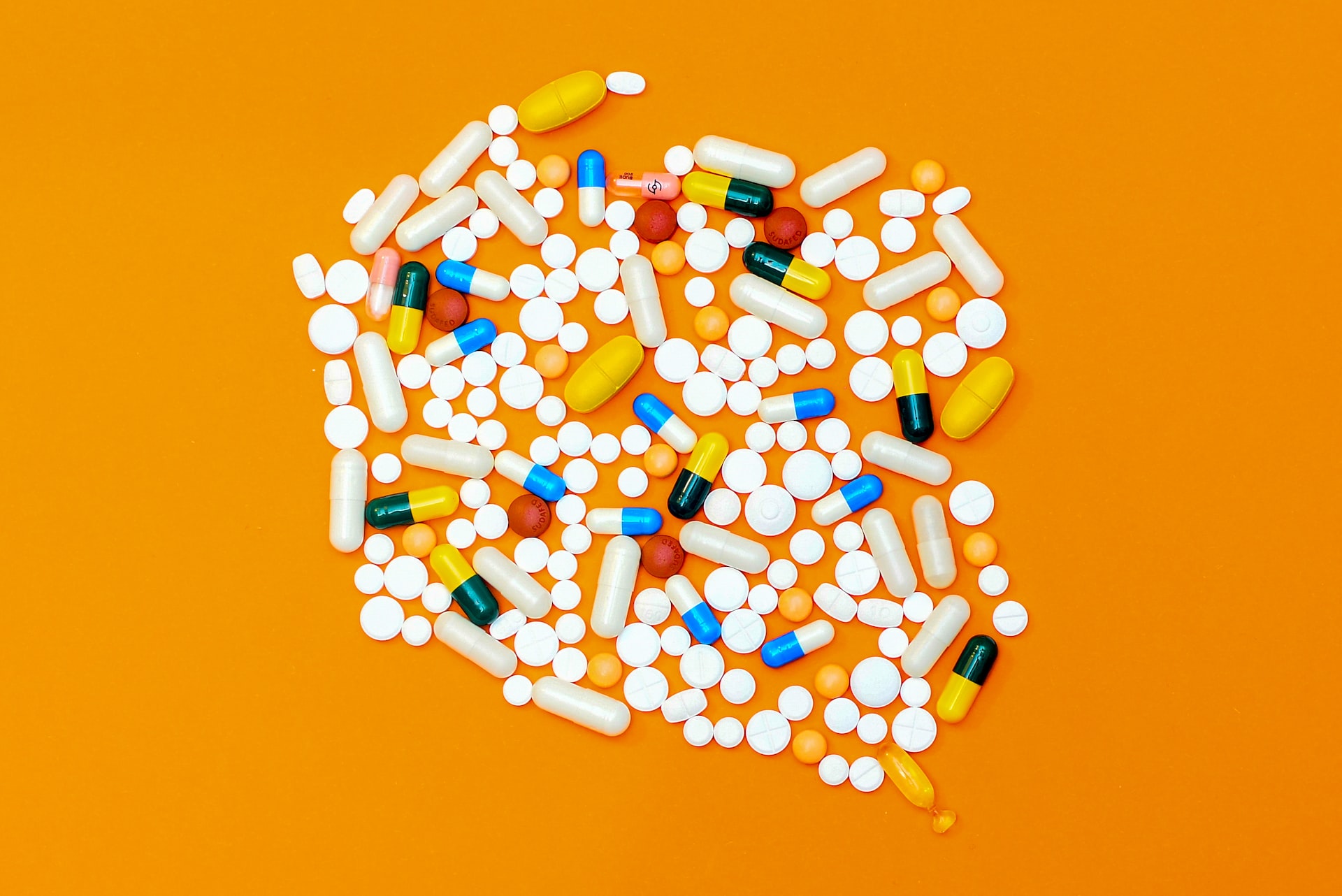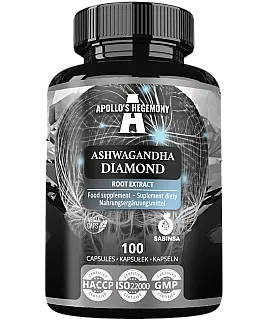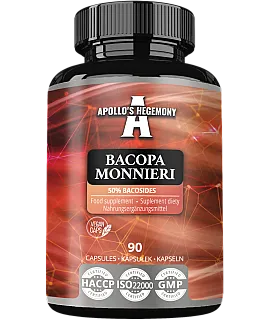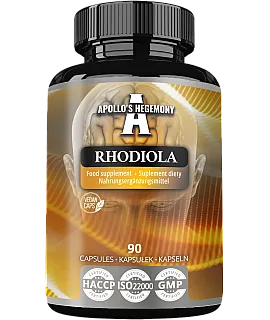Adaptogens and physical performance - what are the benefits?

Without a doubt, sports is health. However, let's add that this is a sport of moderate intensity. For that, high-performance sports are a serious stress and require the right approach to steadily increase performance and actually stay healthy in the process. The use of adaptogens is a promising part of a strategy to prevent the effects of overload on the body, and plant-based dietary supplements are becoming increasingly popular in the world of advanced sports. Let's find out how adaptogens affect athletes' physical performance and fitness.
- History of adaptogens
- How do adaptogens affect physical performance?
- Adaptogens help athletes
- Which adaptogens are best for athletes?
- Summary
History of adaptogens
'Adaptogen' is a relatively new term, having been in use for several decades. Previously, medicinal plants were classified differently, but their effects have not changed. The plants we now recognize as adaptogens, for the most part, have a history of thousands of years of human use. They were used to prevent symptoms of physical weakness, memory impairment and many other ailments.
About 50 years ago, plant adaptogens were first used in competitive sports because of their great potential to increase the body's resistance to stress and improve physical endurance. Natural adaptogens can provide a range of benefits in cases of chronic fatigue, cognitive dysfunction and immune protection.
Soviet scientists have contributed a great deal to the development of knowledge on adaptogens. In the early 1960s, adaptogen research developed in the USSR as a separate field of biomedical research. The goal of stress research was to develop drugs and methods capable of stimulating the body's internal adaptive mechanisms to help it survive in situations of intense or prolonged stress, preferably while maintaining its physical and mental capacity. The scope of the research conducted was enormous. By 1982, 1009 papers (mostly pharmacological and clinical) had been published in Russia, and most of them involved extracts or isolates prepared from Eleutherococcus senticosus (Siberian ginseng).
How do adaptogens affect physical performance?
There are several mechanisms involved:
- effects on the neuroendocrine system,
- modulation of the immune system,
- stimulation of glucose uptake in muscles,
- acceleration of repair of damaged proteins,
- control of oxidative stress.
Adaptogens can not only maintain or restore homeostasis and allostasis, but can also promote anabolic regeneration. They can make the body use oxygen, glucose, lipids and proteins very efficiently, thus providing a constant supply of energy.
There is no denying that physical performance is also affected by mental performance. When the brain is tired, sleepy, overloaded, it will not be able to adequately drive the musculoskeletal apparatus to achieve high exercise performance. For this reason, nervous system stimulants are one of the most popular, effective and fastest-acting groups of substances used by athletes. We are talking about coffee, caffeine, pre-workout supplements, but also officially prohibited in sports pharmacological stimulants.
Unlike conventional stimulants (sympathomimetics), adaptogens are not addictive, do not induce abuse or build tolerance to their effects. At the same time, they do not cause deterioration of mental function even with long-term use.
Of course, adaptogens do not give an immediate boost of energy like ephedrine, fentermine and other psychostimulants used as sports doping. Their action is considered more in the context of reducing fatigue and restoring energy levels to optimal levels, and their effectiveness should be seen more in daily use than in ad hoc use. This makes the action more natural, subdued, safe and does not involve any compromises.
Adaptogens make intense sports not such a drastic experience for the body.
With adaptogens, we become less sensitive to all that hardship, and our systems respond much better to physical strain.
Adaptogens help athletes
Adaptogens and sports are a very graceful combination. High-performance sports are a powerful stressor for the body. Constant exploitation of the body and forcing it to increase its capabilities are not neutral for health. When the adaptation process is not efficient enough, you can quickly overtrain.
Adaptogens mostly have anti-inflammatory and antioxidant effects. Intense sports initiate an increase in both oxidative stress and inflammation. While in sports one should generally not overdo antioxidants, especially around training, the higher the intensity and volume of training on a weekly basis, the more legitimate antioxidant supplementation becomes so that oxidative stress does not take on a monstrous scale. Adaptogens in this case help to see to it that the amount of free radicals and the inflammatory response remain at the desired level.
Keep in mind that adaptogens are intended to help not only in ordinary training, which takes place in the comfort of, for example, the gymnasium of a fitness club. The benefits can be appreciated most especially in extremely adverse conditions, such as high temperatures (e.g. running in hot weather), high mountain conditions with reduced oxygen availability, cold weather, or deep-sea diving.

Which adaptogens are best for athletes?
Physically active people would be best advised to choose those adaptogens that have a proven energizing effect and perform best in terms of physically strengthening the body. These will include, in particular:
- Rhodiola rosea
- Ginseng proper
- Siberian ginseng
- Chinese citronella
- Chinese mace
For use immediately before training, the first two work particularly well. They have the most pronounced effect on energy, thanks to their interaction with the monoaminergic system. This action makes the effect of reducing fatigue and increasing motivation one of their most prominent properties.
The calming adaptogens, such as Ashwagandha, Bacopa monnieri and Gotu kola, may perform less well before a workout. This does not mean that there is no place for them in an athlete's supplementation, only that they are better located then, for example, before bedtime.
It is worth noting that some synthetic adaptogens (i.e. actoprotectors) are banned or under observation by WADA (World Anti-Doping Agency). Their consumption is associated not only with increased physical and mental immunity, but also with vasodilation of blood vessels and lower blood sugar and lactic acid levels. Natural adaptogens, such as plant and mushroom extracts, give professional athletes much greater freedom of use, without fear of penalties and exclusions.
Summary
There are many benefits to the use of adaptogens by athletes. Adaptogens offer not only an increase in the physical performance of the body, but also better well-being and overall health. They are undoubtedly worth including in an athlete's supplementation plan, but they should be extracts with an action profile that best fits the individual's expectations.
Sources:
 ⮜ Previous article
⮜ Previous article
Homocysteine - what is it and what are its standards?
 Next article ⮞
Next article ⮞


